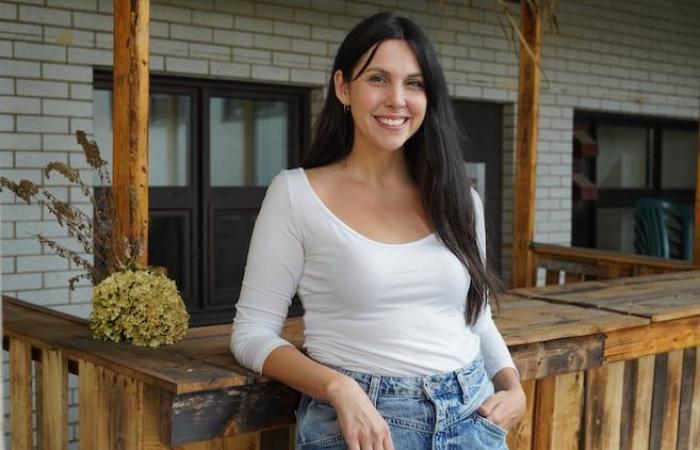Question: Why the piece is called I no longer belong to myself?
Answer: The title imposed itself. When I had my daughter, I felt like I was a different person. For example anxiety: it’s something I’ve never experienced before and I had big breakouts a few weeks after giving birth. It was clearly anxiety about this new role. All the little everyday things, I saw them differently. I felt like I no longer belonged to myself, that I was no longer myself, in a way.
As if everything I had experienced before was no longer compatible with my new reality. The show talks as much about the great challenges experienced by being a mother, for example mental health issues, but also about moments of epiphany where you say to yourself: this is my life now and I really wouldn’t go back.
Q: Have you suffered from postpartum depression?
R: It’s funny because I don’t know. I had my daughter during the pandemic. I was quite sad, depressed. Our body changes a lot and rush hormone is very strong. Breastfeeding. Your weight. Adapt to your child’s needs. We experience a lot of pressure. And it wasn’t easy for me to sleep and it didn’t help me!
I mourned certain things from my previous life. As a mom, you can’t do everything, even if you wanted to. Career, social life, sports… We may say that it’s 2024, that it’s no longer the same and that dads are more involved and that’s true, but there is still no only 24 hours in a day.
“I didn’t find that I had many tools to think about motherhood,” Ariane Tremblay says today. (Catherine Trudeau/La Voix de l’Est)
Q: What social pressures did you feel?
R: That of presence, above all. A mother who goes out a little in the evening, who has hobbies, who has a very demanding job, is frowned upon. And when faced with a father who has important duties and who comes home late at night, the outlook will not be at all the same, since the mother is often the main attachment figure. I feel like we’re conditioned to this, to the double standard.
Do you often hear people say: oh, is it your boyfriend who looks after the evening? He doesn’t keep them, they are his children! And I have a friend who almost got applauded when he walked his child in a stroller. People told him what a good father he was. How many women walk the stroller, breastfeed their children, and they don’t get congratulated… My text will speak a lot to mothers, but also to parents.
Q: Is it still difficult for mothers to combine motherhood with a career or anything else?
R: Yes, and parents are more aware that time spent with children is important. You don’t want to have a child so you don’t have to take care of it. Still, there is a lot of guilt when you want to have something else on the side.
I think I wrote the text that I would have liked to read before giving birth.
— Ariane Tremblay
I didn’t find that I had many tools to think about motherhood. It’s overwhelming, this new role of parent which takes everything with it, which changes everything and which means that we literally no longer belong to each other.
All I want is for this show to make people feel good. Let us collectively take the blame for all of this. There are a lot of things we feel bad about, but in the end, everyone shares that.
I no longer belong to myself: stories of motherhoodperformed by Jade Archambault and directed by Francis Sasseville, is presented at the Pocket Theater of Cégep de Granby on October 25 and 26 at 7:30 p.m. Tickets: $20.






